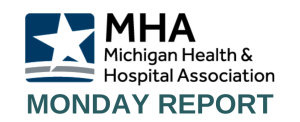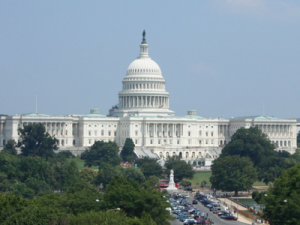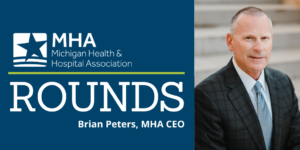
 MHA Comments on SUSTAIN 340B Discussion
MHA Comments on SUSTAIN 340B Discussion
The MHA submitted comments to U.S. Sens. Debbie Stabenow (D-MI), John Thune (R-SD), Shelley Moore Capito (R-WV), Jerry Moran (R-KS), Tammy Baldwin (D-WI) and Benjamin L. Cardin (D-MD) on proposed changes to the 340B Drug Pricing Program. The discussion draft …
Behavioral Health Loan Repayment Program Available
The Michigan Department of Health and Human Services recently announced the upcoming Behavioral Health Loan Repayment program, offering up to $300,000 per award to repay educational debt. This program is offered as part of …
National Blood Collection and Utilization Survey: Response Requested
The CDC issued a National Blood Collection and Utilization Survey invitation to all U.S. blood collection centers and acute care hospitals that perform a minimum of 100 inpatient surgical procedures annually. The survey aims …
Latest AHA Trustee Insights Focuses on Importance of Children’s Health
The March edition of Trustee Insights, the monthly digital package from the American Hospital Association (AHA), outlines the array of challenges children are facing and the responsibility to help children reach their potential. Hospital strategic plans …
 MHA Podcast Explores Important Role Hospitals Play in Public Health
MHA Podcast Explores Important Role Hospitals Play in Public Health
The MHA released a new episode of the MiCare Champion Cast during National Public Health Week to explore how hospitals are engaged in public health. Featured guests include Julie Yaroch, D.O., president of ProMedica Charles and Virginia Hickman Hospital and senior vice …
 MHA CEO Report — Cybersecurity Takes Center Stage
MHA CEO Report — Cybersecurity Takes Center Stage
So began a letter dated March 10 from Xavier Becerra, the Secretary of the U.S. Department of Health and Human Services (HHS), referencing what is emerging as one of the most extensive and impactful cyberattacks in U.S. history. …
The Keckley Report
 Is Private Equity the Solution or the Problem in Healthcare?
Is Private Equity the Solution or the Problem in Healthcare?
“Of late, private equity investors in healthcare services have faced intense criticism that their business practices have compromised patient safety and raised costs for consumers. March 5, the FTC, DOJ and HHS announced the launch of an investigation into the inner workings of PE in healthcare. It comes on the heels of U.S. Senate investigations in their Finance, HELP and Budget Committees to explore legislative levers they might pull to address their growing concerns about affordability, competition and accountability in the industry. …
PE is part of healthcare’s solution to its poorly structured, perpetually inadequate and mal-distributed funding. But creating a level playing field through meaningful regulatory reform is necessary first. …”
News to Know
- Registration is now open for the 2024 MHA Graduate Medical Education Capitol Day, scheduled from 8:30 a.m. to 3:30 p.m. Wednesday, May 1, at the MHA Capital Advocacy Center.
- Registration is open for the 2024 Michigan Maternal Infant Health Summit scheduled June 17-18 at the Lansing Center.

 MHA Comments on SUSTAIN 340B Discussion
MHA Comments on SUSTAIN 340B Discussion MHA Podcast Explores Important Role Hospitals Play in Public Health
MHA Podcast Explores Important Role Hospitals Play in Public Health MHA CEO Report — Cybersecurity Takes Center Stage
MHA CEO Report — Cybersecurity Takes Center Stage